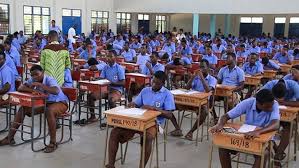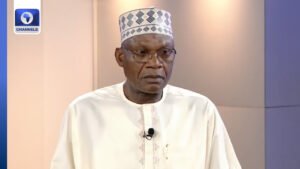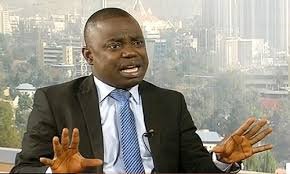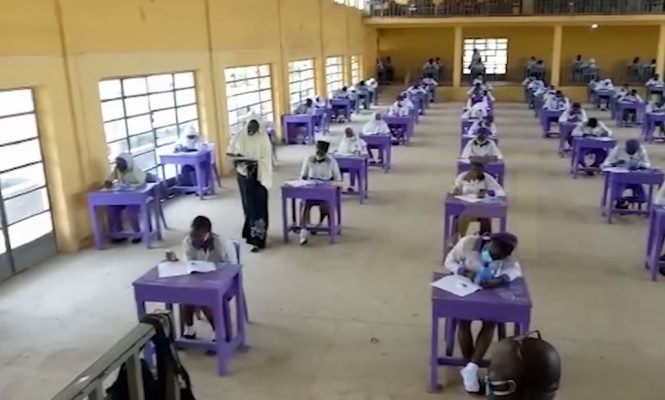Is Nigerian Federal Government at Crossroads regarding its new educational policy that bans under 18 from WASSCE and SSCE examinations? Juliet Jacob probes further as controversy over the government’s decision to stop anyone yet to attain 18 years from participating in the aforementioned exams.


The recent decision by Nigeria’s Federal Government to enforce an 18-year age limit for students taking the West African Senior School Certificate Examination (WASSCE) and the Senior School Certificate Examination (SSCE) has sparked a nationwide debate. Announced by the Minister of Education, Tahir Mamman, the policy is intended to create a more structured educational experience for students. However, this decision has triggered widespread criticism, raising questions about its potential impact on educational standards, youth rights, and Nigeria’s human capital development.
The Policy Announcement
Minister Mamman, in defending the policy, highlighted the government’s intention to align Nigeria’s educational system with international norms, ensuring students are adequately prepared before taking these pivotal exams. “Our goal is to maintain educational standards and ensure that students are fully prepared before they sit for these crucial examinations,” Mamman stated. The policy also extends to the Unified Tertiary Matriculation Examination (UTME), managed by the Joint Admissions and Matriculation Board (JAMB).
Criticism and Backlash: A Misplaced Priority?
Despite the policy’s intended goals, it has faced significant opposition from educators, parents, and legal experts. Professor David Imhonopi of Covenant University has criticized the move, calling it a “misplaced priority.” He argues that the real challenges facing Nigeria’s education system stem from poor infrastructure and inadequate teacher welfare, not the age of students taking exams. Critics assert that this restriction could disproportionately affect academically advanced students, potentially stifling the nation’s intellectual growth.
Global Comparisons: Flexible Approaches in Developed Nations
In many developed countries, university admission ages are flexible, allowing academically gifted students to advance if they meet the required standards. For example, in the United States and the United Kingdom, provisions exist for younger students to enter higher education earlier if they are ready. This flexibility is seen as vital for nurturing talent and accelerating human capital development. One celebrated example is Dorothy Jean Tillman, a teenager from Chicago who earned a Ph.D. at just 17. Her early academic advancement is often cited as proof of the benefits of allowing gifted students to progress at their own pace.
Potential Consequences: Hindering Nigeria’s Progress?
The new age restriction could have significant implications for Nigeria’s progress toward achieving the Sustainable Development Goals (SDGs), particularly in areas such as quality education (SDG 4) and decent work and economic growth (SDG 8). By slowing the educational progression of younger students, Nigeria risks hindering its ability to harness the full potential of its youth for economic development and innovation.
Human Capital Development: Progress or Regression?
Human capital development is key to a nation’s economic growth and global competitiveness. By enforcing this age restriction, Nigeria could be undermining its efforts to cultivate a highly skilled and educated workforce. Critics argue that instead of imposing a blanket age requirement, the government should focus on ensuring that students, regardless of age, are well-prepared for the demands of tertiary education.
Voices of Concern: Public Outcry
The policy has ignited protests and widespread public discontent across Nigeria, with many questioning the government’s priorities. Educators have pointed out inconsistencies in the government’s approach to youth and education. For instance, while child marriages are still permitted in some parts of the country, younger students are being restricted from taking critical exams.
Professor Emmanuel Osodeke, National President of the Academic Staff Union of Universities (ASUU), has expressed concern about the rush to push students into higher education at a young age. He questions why the focus is on forcing students into university prematurely instead of allowing them to follow a standard academic progression.

Frank Tietie, an analyst on Arise News, expressed concerns about the policy, arguing that the focus on age rather than addressing Nigeria’s real educational challenges is misguided. He emphasized that instead of solving the pressing issue of the 18.4 million out-of-school children, the government appears more concerned with preventing younger, brilliant students from progressing due to age restrictions.

Tietie dismissed the notion that younger students passing exams at 14 or 15 years old are doing so through exam malpractice, emphasizing that these students succeed due to discipline and hard work, qualities that many adults lack. He also questioned the belief that age determines maturity, pointing out that some parents invest heavily in their children’s education and discipline, while others do not.
Alternative Perspectives: Aligning with International Standards
On the other hand, some analysts believe the age limit is necessary to align with international educational standards, ensuring that students are more mature and better prepared for significant exams. Elias Okoro, an educational analyst, who spoke to Africa health report (AHR), acknowledged that setting the age at 18 aligns with systems in many developed countries. However, he also pointed out that this policy could increase pressure on students, especially those from less privileged backgrounds or those who have experienced interrupted schooling.
Public Opinion and Protests
The policy change has sparked protests and widespread public outcry, with many Nigerians questioning its necessity. Mr. Jide, a concerned citizen, expressed his frustration: “I might end up graduating at the age of 35. If they’re enforcing this, they should also consider raising the National Youth Service Corps (NYSC) age limit from 30 to 40 years. What is really wrong with the government? Is this supposed to be Nigeria’s priority right now?”
Similarly, Mrs. Charity Mbah, a mother of three, voiced her concerns: to AHR “I don’t agree with the age policy imposed by the education minister. I want my children to finish school early so they can contribute to society and support us as parents. I don’t see why my kids, who are brilliant, should have to wait until they’re 18 before they can sit for these exams.”
Support for the Policy: The Educators’ Perspective
Despite the criticism, some educators support the new policy. Mrs. Joy Ochefu, a teacher, explained in an interview with *Africa Health Report* (AHR) that the age limit could help address challenges in schools. She noted that younger students often struggle with cognitive development, which hinders their ability to grasp complex concepts. “Teachers often have to reintroduce material that should have been mastered in primary school,” she said. Ochefu believes that the new policy could help ensure that students are more prepared and reduce unrealistic expectations from parents.
Key Questions Moving Forward
1.Timeline for Implementation: When will this policy be fully implemented? Will it affect students currently in the education system, or only new applicants?
- Impact on Current Students: How will this policy affect students who are already enrolled in tertiary institutions but are below the age of 18? Will they be required to leave, or will they be allowed to complete their studies?
- Cut-off Marks and Eligibility: Will this policy impact the cut-off marks for university admissions? How will the eligibility criteria be adjusted to reflect this new age requirement?
- Public Opinion and Protests: With the reported protests against this policy, what measures will the Ministry take to address the concerns of parents, educators, and students? How will the Ministry gauge and respond to broader public opinion?
- Educational Integrity and Fairness: The Minister mentioned that 90% of students might not be eligible for school exams under current regulations. How will this policy be enforced, and what measures will be taken to ensure it is implemented fairly?
As the government moves forward with this controversial policy, the nation waits to see how it will navigate the complex challenges and implications it presents. The debate surrounding the age limit for WASSCE and SSCE highlights the broader issues within Nigeria’s education system and the need for a more comprehensive approach to reforms.



